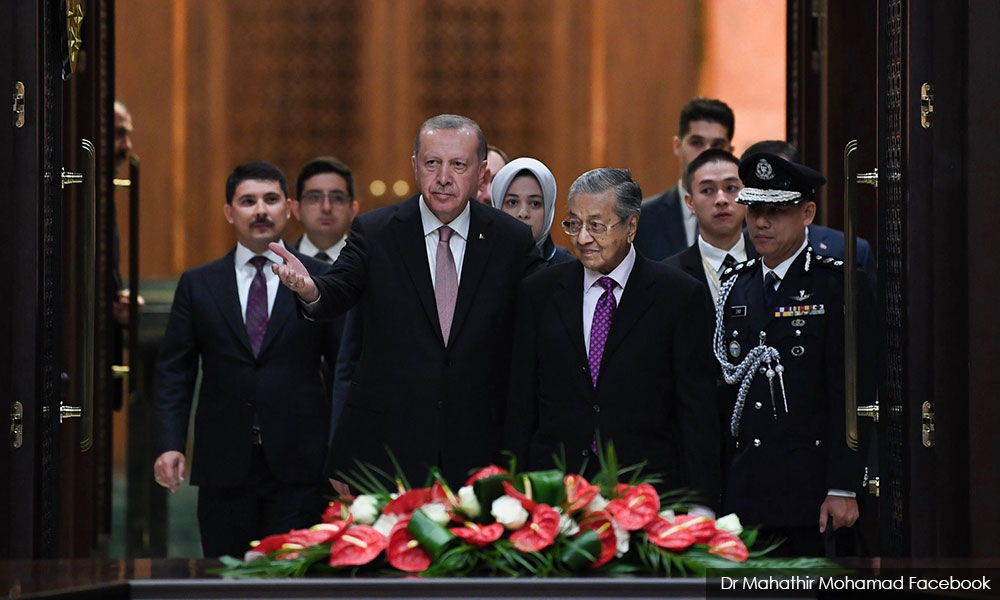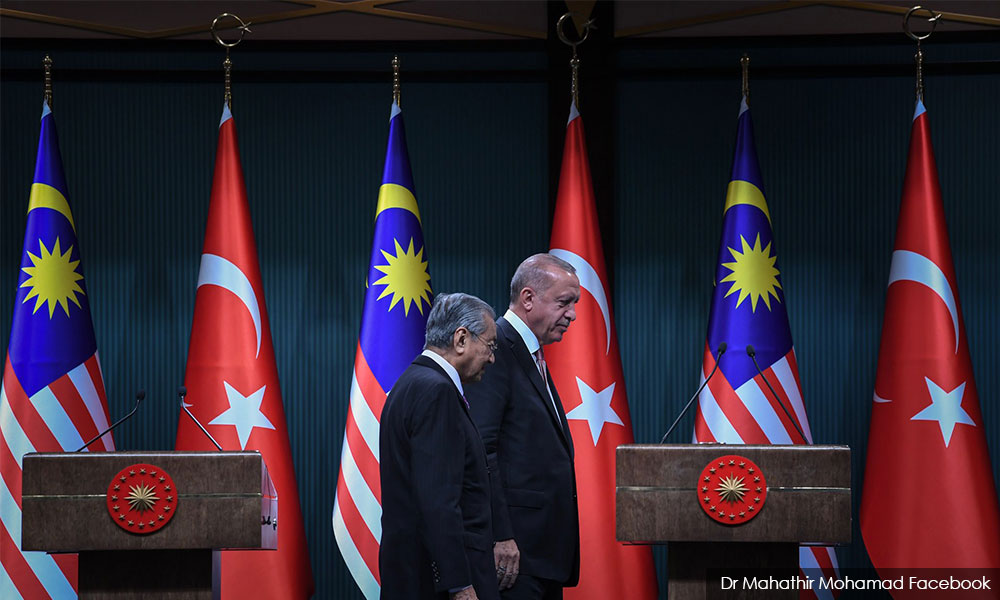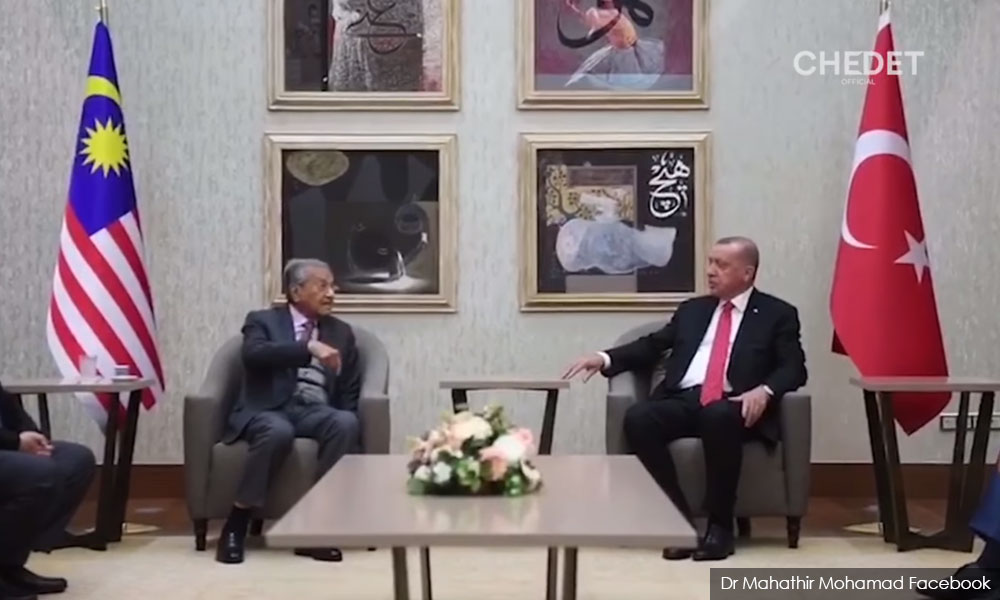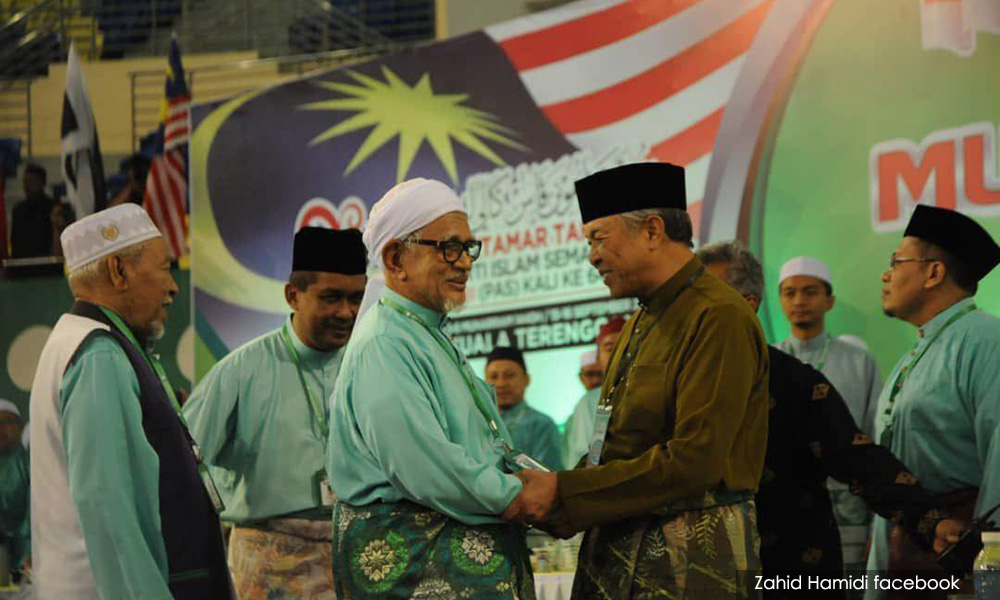
Published by Malaysiakini, images from Malaysiakini.
An alliance of Muslim nations may not have been raised by Prime Minister Dr Mahathir Mohammad in any specific form, yet it carries the potential to reshape the world order.
But it is clear that this inchoate idea had been in his mind for some time.
And it emerged in his conversation with Turkish President Recep Tayyip Erdogan, when Mahathir spoke of the importance of Malaysia, Pakistan and Turkey working hand in hand to reduce their dependence on the usual suspects in the world.
To the list, one must add Iran, Indonesia and Qatar. Three of the most strategic Muslim countries in the world.
Iran may be under sanctions from the United States, but it is now developing an alternative system of commercial payment with Russia and China to overcome American domination on the Swift banking system.
Pakistan is the “iron brother” of China, with a significant understanding of its internal politics. While Malaysia also understands this, it helps to have the help of Pakistan to overcome any imbroglio over the South China Sea.
Qatar is rich with liquefied natural gas. With China still very much dependent on coal, which increases its pollution problem, Qatar and Malaysia’s rich reserves of LNG can reduce the superpower’s energy consumption profile, thereby reducing the threat of climate change as well.
Indonesia is no less a major power and producer in LNG. It also plays a powerful role in the Indo-Pacific and the Straits of Malacca alongside Malaysia.

Turkey, in turn, controls the Bosporus which makes the US and Russia, and even China, France, the United Kingdom ever respectful of the country.
If there is an alliance of Muslim nations, what the world will see is nothing less than an Islamic version of the G6. Other Muslim countries have to be brought into this coalition as well to further strengthen it.
When Malaysia is in such an alliance, it can also depend on the membership of Indonesia in the G20 and the Organisation of the Petroleum Exporting Countries (Opec).
As long as Malaysia and Turkey, a sectoral partner of Asean, can imagine the above scenario in a comprehensive and strategic manner, there is no reason why the Islamic world has to be constantly at the whims and fancies of other external powers.
An alliance of Muslim nations could control all the major maritime chokepoints in the Straits of Malacca, Gulf of Oman, Strait of Hormuz, and the Bosporus.
Since maritime trade is three times cheaper than rail freight, the impact of the Muslim world would be significant on global commerce.
Together we stand, as Mahathir said at PKR’s Port Dickson retreat last week, divided we fall.
What is valid in Pakatan Harapan is equally true in the world of Islam.
Dr. Rais Hussin is President & CEO of EMIR Research, an independent think tank focused on strategic policy recommendations based upon rigorous research.

